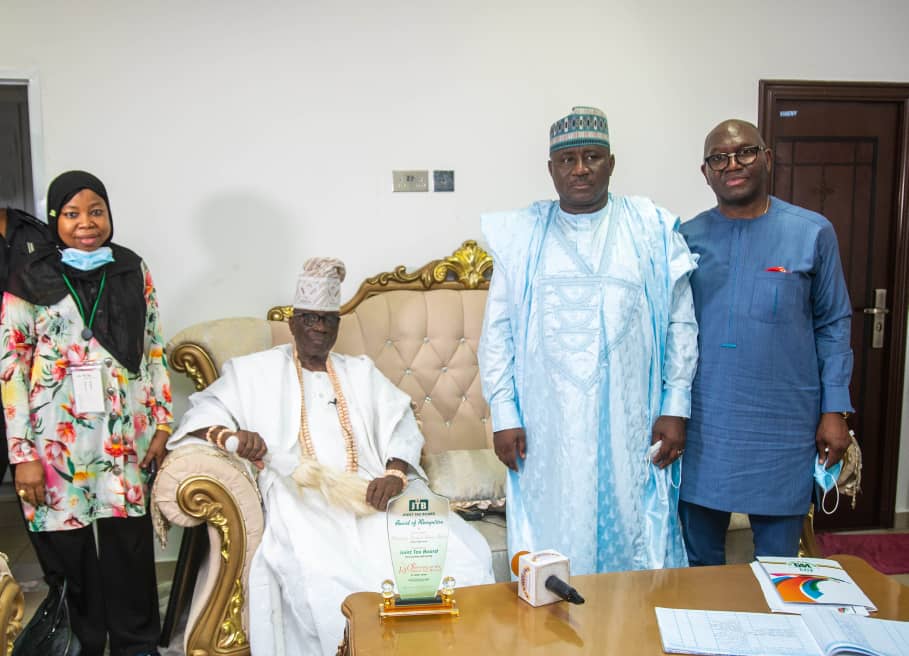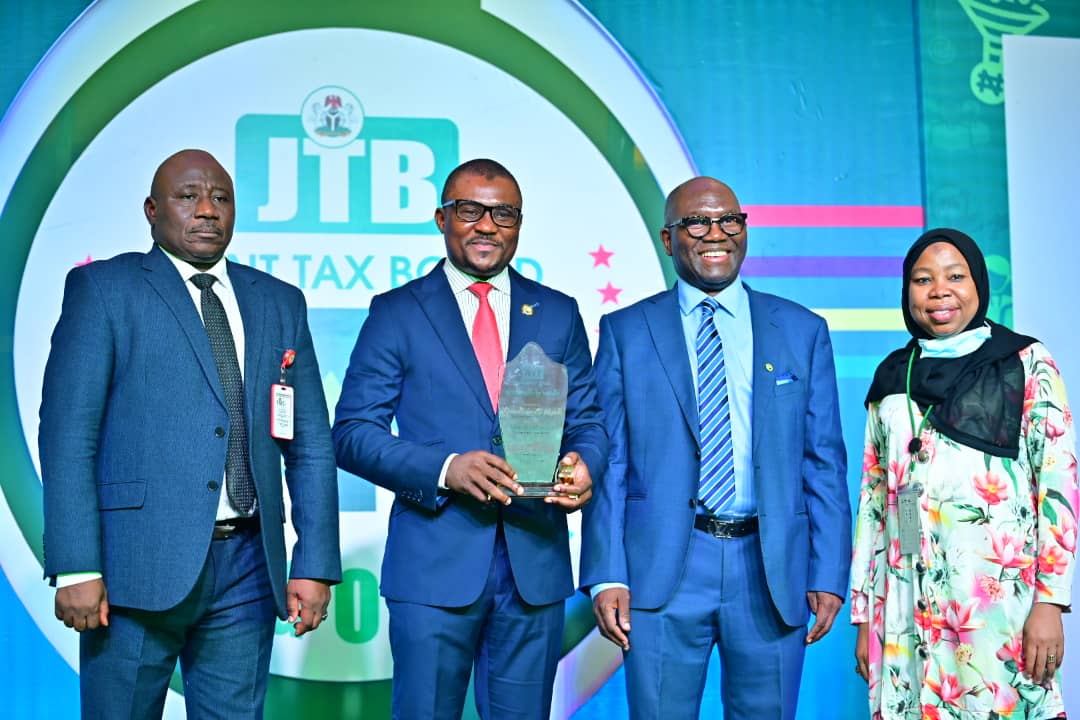The Lagos State Government and its agency, Lagos Internal Revenue Service on Monday, 13 December, 2021 said the state’s Internally Generated Revenue grew by 7, 400% between 1999 and 2021 and called for increased nationwide voluntary tax compliance at the 149th Joint Tax Board Meeting held at Eko Hotels and Suites, Victoria Island, Lagos. The JTB meeting is a quarterly conference of chairmen of inland revenue service from the 36 states of the federation and the FCT to appraise performance and deliberate on tax issues at various levels of government across the country.

The Governor of Lagos State, Mr. Babajide Sanwo-Olu, who was represented by the Commissioner for Finance, Mr. Rabiu Olowo, at the opening ceremony of the two-day meeting, said Lagos remains the largest contributor to national non-oil revenues, by way of corporate income taxes, VAT, customs duties, and port charges, among others.
He said: “This is to be expected from the sub-national entity that is the most populous in the country and is also the biggest commercial hub. However, in the subsequent re-distribution of resources, we do not see any reflection of the contribution of Lagos State. Our share in this redistribution fails to take into account the demographic and infrastructural burdens and pressures that accompany being the economic nerve-center of the nation.
“This state of affairs is what compelled the State, under the visionary leadership of Asiwaju Bola Ahmed Tinubu, to commence a transformational reform of its internal revenue process, within the ambit of the law. The result is that since 1999 the Lagos Inland Revenue Service (LIRS) has undergone the most extensive tax administration reforms of any sub-national government in Nigeria. I am pleased to let you know that Lagos State has grown its IGR from N600m monthly in 1999 to over N45bn monthly as of today, an astounding increase of 7,400%. It all began with ensuring the foundational autonomy of the LIRS, which the Lagos State Revenue Administration Law, 34 2006 helped achieve.”
The Executive Chairman of LIRS, Mr. Ayodele Subair, stated that the tax models applied in major countries of the world with high level of compliance have been difficult to replicate in Nigeria because all the phenomena that make it a success are not available in Nigeria. Subair said the models include the existence of high levels of literacy of taxpayers and efficient data processing systems which would aid detection of fraud and high levels of trust between Government and the people.

He said: “However, effort is being made by all tax authorities to improve on the ease of doing business and simplification of tax administrative processes which will in turn significantly advance the tax compliance levels within the country. In order for the government to provide the necessary infrastructures to aid growth and development there has to be co-operation by all stakeholders which would in turn occasion a shift in the way and manner by which tax is administered and ultimately sustain or increase tax revenue for the state.
“Therefore, taxpayers must avail themselves of the quid-pro-quo of taxation. They must remember that paying tax is not a mere civic obligation as some misinformed commentators would have it but a mandatory legal one. As administrators, we must ensure that our mandate is carried out effectively and efficiently without fear or favour. We must ensure that all assessments are justifiable and guarantee that due process is followed in our statutory functions.
“The judiciary must ensure that justice is not only done but seen to be done. All parties involved in the revenue adjudicatory process, seeking justice must get justice. Cases before the Courts and Tribunals must be dispensed with timeously so that the much-needed revenue that accrues to the States are recovered. Statutory provisions must be interpreted appropriately without misinterpretations and favour to any party. Revenue laws, particularly income tax laws, must be straightforward and easy to understand and be complied with. Penalty for non-compliance on the other hand must be steep and commensurate with the offense in such a way that it deters non-compliance.”
According to the Executive Chairman of Federal Inland Revenue Service and Chairman, JTB, Muhamad Mamman Nami, who was represented by the Coordinating Director of JTB, Mohammed Lawal Abubakar, the fact that Nigeria still struggles with low tax to GDP ratio shows that revenue generation system needs total overhaul.
Members of the JTB visited some tax-funded projects across Lagos State, including the new Massey Street Children Hospital, which is being upgraded to a 7-storey, 150 bed ultra-modern and fit for purpose pediatric and emergency general hospital; Lagos Rail Mass Transit (Blue and Red Line); and Lekki Craft Market. They also paid a courtesy visit to the palace of the Oba of Lagos, Oba Rilwan Osuolale Akiolu, who called for proper data collection to improve revenue generation across the country.
The Oba said: “Apart from salary earners, many citizens of Nigeria do not pay tax, and this is very important in providing infrastructure. We have to ensure that we voluntarily pay our taxes. Payment of taxes as at when due is the primary responsibility of any God-fearing leader or person.”
The Medical Director, Massey Children’s Hospital, Dr. Abimbola Mabogunje, said the upgrading of the hospital which would be highly subsidized was as a result of tax payment and called for compliance.
The JTB meeting continues on Tuesday with presentation of reports and deliberation on tax matters as well as a gala night at Civic Centre, Ozumba Mbadiwe Street, Victoria Island, to send forth some members and honour others for long service at the board.

